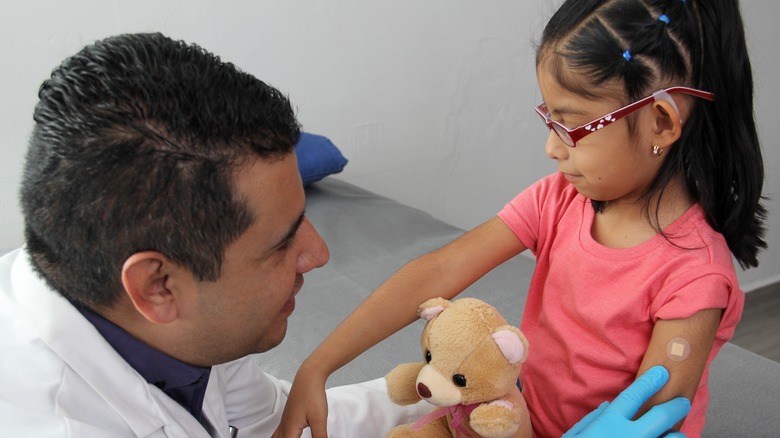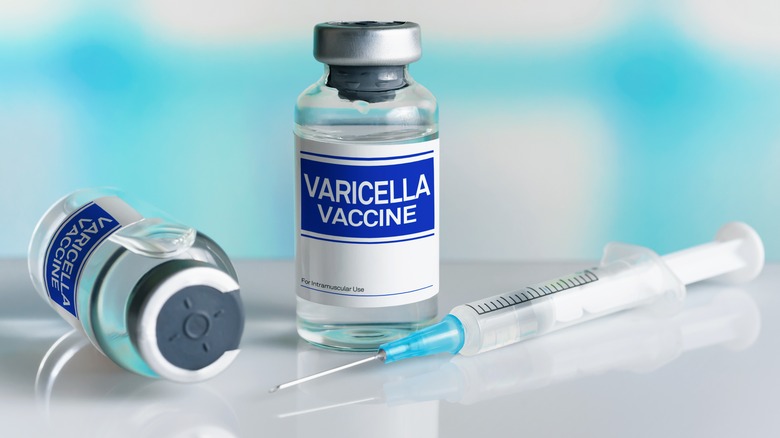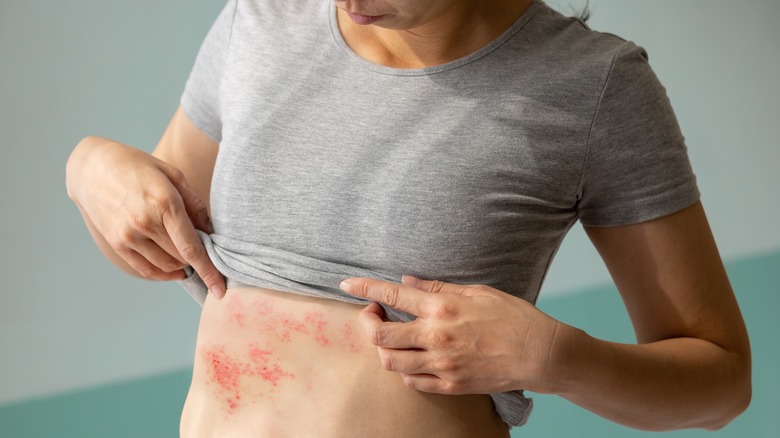Does The Chickenpox Vaccine Protect You From Getting Shingles?
Initially emerging on the face, chest, and back, chickenpox is characterized by the outbreak of an itchy, blistering rash on the body that stems from infection with the varicella-zoster virus (VZV). Easily transferred in communal settings, such as schools and daycare facilities, cases of chickenpox are often seen in young children. However, anyone of any age is susceptible to the disease if they have never been vaccinated or infected.
In addition to a rash, some individuals may also experience fever, headache, loss of appetite, or tiredness. While many people recover from chickenpox within about a week, severe cases of infection can lead to pneumonia, dehydration, sepsis, bacterial infection, brain swelling, and more. Babies, adolescents, pregnant people, and those with compromised immunity may be particularly susceptible to such complications.
Research shows that vaccination has a 90% success rate in preventing chickenpox, but does it also protect against potential shingles outbreaks later in life?
The chickenpox vaccine appears to lower shingles risk in children
The varicella-zoster virus remains dormant in those who have had chickenpox, residing within spinal cord nerves, according to The College of Physicians of Philadelphia. For some people, the virus can become reactivated years later in the form of shingles. Similar to chickenpox, shingles manifests as a painful, oozing rash that's usually isolated on one side of the body.
Research has shown, however, that receiving the two-part chickenpox vaccine may reduce one's chances of developing shingles later in life. In a 2019 study published in the scientific journal Pediatrics, researchers tracked health data from over 6 million children up to 17 years of age between 2003 and 2014. The findings showed that shingles rates were 78% lower in children who had received the chickenpox vaccine compared to those who had not.
"There is a dual benefit of vaccination," lead author on the study Sheila Weinmann told NBC News. "The take-home message for parents is that the varicella vaccination reduces risk of shingles as well as chickenpox in children." The only exception found was in 1-year-old vaccinated children who proved to have higher shingles incident rates than unvaccinated children of the same age, per Scientific American.
Those with natural immunity may face an increased risk of shingles
The College of Physicians of Philadelphia explains that while the chickenpox vaccine has proven effective at reducing one's likelihood of shingles later down the line, those who developed immunity early on by contracting the virus don't get the same benefit. For these individuals, heightened immunity is achieved through regular exposure to people with the virus, often on an annual basis. However, with more children receiving the chickenpox vaccine, unvaccinated individuals are receiving less exposure. As a result, those who contracted the virus naturally are not able to fight off its reactivation as effectively due to diminished immunity. In turn, this increases the risk of developing shingles.
This affects older adults, and shingles is now impacting younger individuals, too. It has raised questions in the medical community as to whether or not the shingles vaccine should be administered earlier than the age of 60. According to the current guidelines, the first dose of the chickenpox vaccine is issued to children between the ages of 12 and 15 months, and the second dose is given when they are between 4 and 6 years old, per Nemours KidsHealth.



